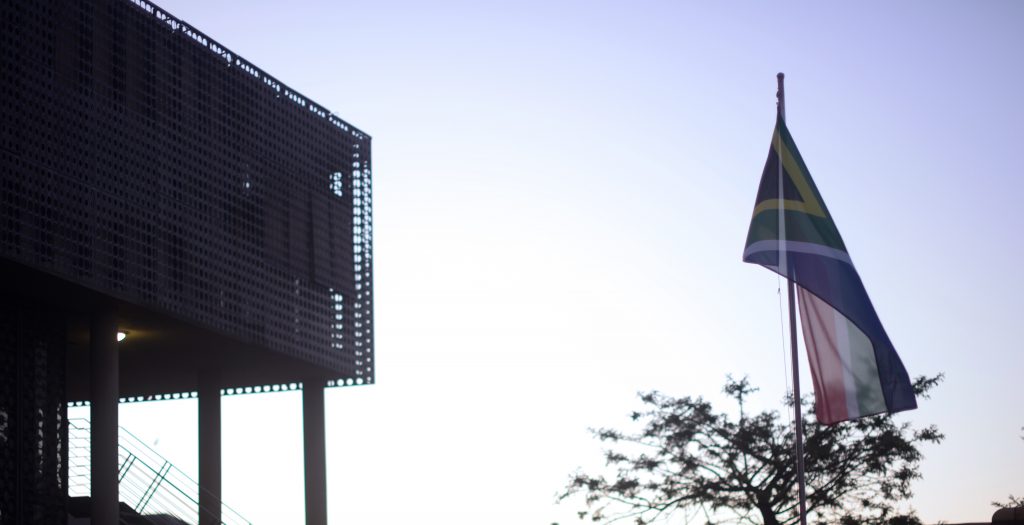President Cyril Ramaphosa must ensure that the recommendations made in the first part of the State Capture Commission report are implemented and that those responsible for corruption are held accountable, Amnesty International South Africa said.
Commission chair, Deputy Chief Justice Raymond Zondo, who was tasked with determining whether the evidence established state capture, which is defined as systematic political corruption, concluded that “state capture had been established”.
“Corruption undermines democracy and the rule of law which infringes on basic human rights. In South Africa, access to basic services is largely crippled by the mismanagement of public funds and a lack of prioritisation by the government,” Amnesty International South Africa Executive Director Shenilla Mohamed said.
“The state has a duty to protect the human rights of all who live in the country. It is clear from Justice Zondo’s report that the state has failed to do this.”
South Africa is a signatory to the UN Convention Against Corruption and ratified it in 2004. In the foreword to the Convention, former UN secretary general Kofi Annan said: “Corruption hurts the poor disproportionately by diverting funds intended for development, undermining a government’s ability to provide basic services, feeding inequality and injustice, and discouraging foreign investment and aid. Corruption is a key element in economic under-performance, and a major obstacle to poverty alleviation and development.”
Justice Zondo notes that the government cannot be trusted with the “ultimate responsibility” to lead the fight against corruption.
He made a salient point when he said 20 years of frustration, which included a decade of state capture, “pitilessly” exposed flaws and weaknesses which have been exploited by criminals to inflict lasting damage on South Africa’s economy.
Justice Zondo said: “The promise of service delivery so fundamental to the betterment of our society has not materialised”.
“This is in a country where almost 20 million people do not have access to safe, reliable water and 14 million people do not have access to basic sanitation. Meanwhile, 3.7 million families are still waiting for access to adequate housing,” Shenilla Mohamed said.
“Service delivery is the foundation for the full enjoyment of human rights by all who live in South Africa and the state has a constitutional obligation to take action to ensure progressive access to these rights.”Amnesty International South Africa welcomes the recommendation that a National Charter against Corruption be adopted by the government and that it creates an Anti-Corruption Agency free from political oversight.
“Amnesty International believes that anti-corruption efforts can strengthen protection for human rights, as long as they do not involve violations such as denial of due process of law, violations of fair trial rights, and ill-treatment,” Shenilla Mohamed said.
We also welcome Justice Zondo’s recommendation that the Government introduce legislation or amend existing legislation which is meant to protect whistleblowers.
“Whistleblowers are critical to any democracy because they are a warning sign that lets us know as society, as authorities, that something is going wrong. They expose acts of criminality and abuse by governments, corporations, organisations and individuals, as we saw with those who came forward with allegations of state capture. Without whistleblowers, evidence of large-scale human rights violations would never surface,” Shenilla Mohamed said.
“The state is obliged to provide whistleblowers with protection. Amnesty International reiterates its concern that whistleblowers in South Africa are not protected and are either forced into hiding, killed or find themselves having to leave the country, as state capture whistleblower Athol Williams had to do,” she added.
“It is unacceptable that whistleblowers, who are risking their lives in order to protect the people of South Africa and combat corruption, are treated with such disdain.”
“President Ramaphosa needs to take the recommendations of the state capture commission seriously and ensure that the report does not sit on his desk for years with no real action,” Shenilla Mohamed said.
Background
Deputy Chief Justice Raymond Zondo handed over the first part of his state capture report to President Cyril Ramaphosa on 4 January 2022. The first part deals with South African Airways, The New Age newspaper and the SA Revenue Service. The remaining parts of the report will be handed to the president by the end of February 2022.
In August 2018, the commission into allegations of state capture started hearing evidence.
For more information or to request an interview, please contact:
Genevieve Quintal, Media and Communications Officer, Amnesty International South Africa: +27 (0)64 890 9224; genevieve.quintal@amnesty.org.za
Public Document
****************************************
Amnesty International South Africa office, 97 Oxford Road, Saxonwold, Johannesburg, 2196
press@amnesty.org


